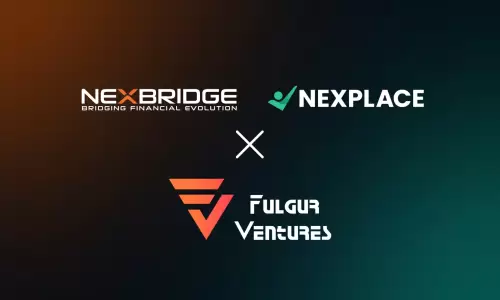 |
|
 |
|
 |
|
 |
|
 |
|
 |
|
 |
|
 |
|
 |
|
 |
|
 |
|
 |
|
 |
|
 |
|
 |
|

Kelly Ye, portfolio manager at Decentral Park Capital, and Andy Baehr, head of product at CoinDesk Indices, trade views on what steps are most important to shape the capital markets and investment landscape for digital assets in a post U.S. election world.
Election 2024 coverage presented by
Andy: Kelly, the US election has concluded and Trump is headed back to the White House, bolstered by a GOP-lead Senate. Bitcoin has already posted a new all-time high, but we know there is no magic wand to transform crypto into a fully-functioning asset class. How will we get there?
Kelly: Let’s think about three parts: 1) regulatory infrastructure that allows projects to exist and to raise capital; 2) investment infrastructure that connects investors to the capital markets; and 3) an investment framework for allocators, big and small.
Tesla Is Moving Bitcoin; Trump-Supported Token Falls Flat
You're reading Crypto Long & Short, our weekly newsletter featuring insights, news and analysis for the professional investor. Sign up here to get it in your inbox every Wednesday.
Andy: Nicely framed. That’s a lot! Let’s hit topic 1 today: regulatory infrastructure. If crypto is meant to be decentralized, why is the U.S. so important?
Kelly: Though crypto is inherently decentralized, with users and investors worldwide, the U.S. remains crucial due to its concentration of capital and favorable business environment. Globally, investors recognize the U.S. as a hub for technology and innovation. A supportive administration can further enhance this landscape, benefiting the industry. In the long term, as blockchain fosters decentralized trust and governance, societies may organize less by nation and more by shared interests, transcending traditional boundaries.
Andy: From the capital markets side — new projects needing access to investor capital — I agree; it’s hard to build without participation from U.S. lenders and investors. However, for the global markets side — trading, derivatives, services to hedge funds — I think global crypto is doing pretty well, given the obvious constraints. Financial engineering in cities like London, Zurich, Singapore and Hong Kong, with deep talent pools and a history of innovation, is doing well. The U.S. did (impressively, in hindsight) launch futures contracts on bitcoin and ether, a few ETFs and ETF options (soon), but for depth, breadth and innovation, you have to get on an airplane.
Kelly: A primary barrier is the lack of regulatory clarity regarding whether digital assets qualify as securities or commodities. Currently, only bitcoin has a clear classification, while other tokens risk being labeled as unregistered securities. The SEC’s "regulation by enforcement" approach is unsustainable and may deter innovation within the U.S. This also has downstream implications for capital markets, as crypto-focused exchanges and custodians face the risk of offering unregistered securities under SEC guidance.
Andy: Indeed. As you have heard me rant about more than once, the regulatory “jump ball” between the CFTC and SEC is an impediment and a nuisance. This was true with basket swaps when Dodd Frank went into effect 12 years ago and it’s true now with crypto. I think about how the SFC in Hong Kong was out ahead creating regulatory structure around “virtual assets,” acknowledging their special properties and users. Now VARA in Dubai and, of course, MiCA in Europe are following suit in their own way. Much of this regulatory architecture is designed around existing assets and exchanges. You bring up an important point: new blockchain-based projects also deserve a clear path for financing and launch.
Kelly: How would you expect indices to be treated in a best-case scenario?
Andy: If the ultimate regulatory goal is investor protection, indices offer not only diversification of returns, but also of risk. If one index constituent fails, the index will replace it and survive. Not to say this removes risk, but non-systemic failures are not catastrophic. We think this provides a handy solution to regulators for index derivatives and index-based U.S. ETFs: if an index is demonstrably broad-based, it may not be necessary to make specific regulatory determinations about each and every constituent. If regulators insist on asset-by-asset regulation, users become concentrated into a small number of assets, even if those tend to be the largest, like bitcoin and ether.
So, we know what’s on our wish lists, but I guess we should end on an upbeat note. We are impatient, perhaps even frustrated, but also hopeful that the new administration can implement more crypto friendly policies, right, Kelly?
Kelly: Timing is critical, as other countries are competing to create a more favorable environment for blockchain technology builders. We are seeing significant developments with bitcoin, ETH ETFs and the CoinDesk 20 index, which offers investors broad-based exposure to the crypto market. However, to fully capture the growth potential of blockchain technology and its applications, active management expertise is essential
免责声明:info@kdj.com
所提供的信息并非交易建议。根据本文提供的信息进行的任何投资,kdj.com不承担任何责任。加密货币具有高波动性,强烈建议您深入研究后,谨慎投资!
如您认为本网站上使用的内容侵犯了您的版权,请立即联系我们(info@kdj.com),我们将及时删除。
-

-

-

- 贸易系统革命:XDC和传真的结束如何重塑金融
- 2025-07-09 23:10:13
- 探索XDC网络如何现代化贸易融资,并以更快,更具包容性全球贸易的区块链超越传真。
-

- 没有50卢比的硬币?德里HC听到为什么印度更喜欢钞票
- 2025-07-09 23:15:11
- 德里高等法院正在审查印度货币对视力障碍的可及性,重点是引入50卢比的硬币。
-

-

- TRD AI,Depin网络和分散计算:一个新时代?
- 2025-07-09 22:30:13
- 探索TRD AI,Depin网络和分散计算的协同作用,以塑造Web3基础架构的未来。
-

- 没有50卢比的硬币?政府说,公众更喜欢轻巧的笔记。
- 2025-07-09 20:30:13
- 由于公众偏爱票据,印度政府没有计划50卢比的硬币。目前的50卢比设计设计面临视力障碍的公民面临挑战。
-

-

- OZAK AI:这个AI代币可以带来巨大的回报吗?
- 2025-07-09 21:10:13
- 探索AI驱动的加密项目Ozak AI及其大量回报的潜力。发现为什么分析师对Oz代币负责。





























































